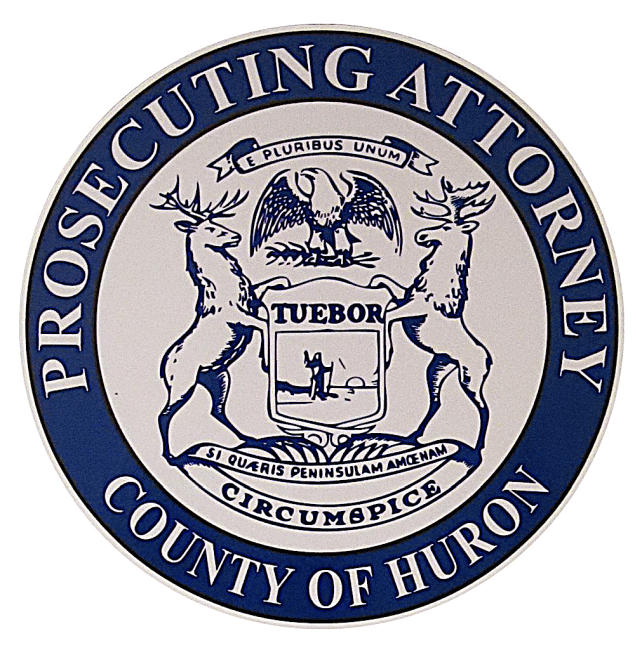-A-
ADJOURNMENT: Postponing a matter until a later date at the request of the defendant, Judge, or Prosecuting Attorney. Adjournments happen for many reasons. For example witnesses, attorneys or defendants having scheduling conflicts or are ill; yours is not the oldest case on that day's court docket; or necessary motions or legal issues have not been decided.
 ADJUDICATION HEARING: A court proceeding in which the guilt or innocence of the juvenile offender is determined much like a trial. If the offender pleads not guilty the proceeding is similar to a trial with testimony and evidence presented to the judge or Jury.
ADJUDICATION HEARING: A court proceeding in which the guilt or innocence of the juvenile offender is determined much like a trial. If the offender pleads not guilty the proceeding is similar to a trial with testimony and evidence presented to the judge or Jury.
ADVOCATE: A person who assists the victim with support, information, or resources.
APPEAL: The process of having a higher court review the lower court's decisions and/or rulings.
ARRAIGNMENT: The defendant is brought before the court and read the charges against him. The defendant is then asked to plead guilty, not guilty, or no contest. Bond is set at this time.
AUTHORIZE: The Prosecuting Attorney's decision to prosecute the case by filing formal criminal charges against the defendant.
-B-
BENCH TRIAL: Trial before a Judge without a Jury.
BEYOND A REASONABLE DOUBT: Reasonable doubt is a legal standard which relates to the Prosecutor's burden of proof at trial. An acquittal or not guilty verdict is rendered when the Jury feels there is doubt of the defendant's guilt based on reason and arising from evidence or lack of evidence.
BOND: The purpose of bond is to ensure the return of the accused for future court appearances and to ensure public safety. Bond is generally an amount of money and/or conditions of release set by the court. Bond is also known as bail.
BOUND OVER: The District Court's decision to transfer a felony case to Circuit Court after the District Court has conducted a preliminary examination or a waiver of the examination.
-C-
CIRCUIT COURT: The felony trial court. If the case is a felony case, then Circuit Court will be the Court where either the Judge accepts a guilty plea or a trial is held to determine the disposition of the case. If a felony case goes to jury trial, then 12 jurors will be selected to hear the evidence and return a verdict of either guilty or not guilty.
COMPLAINT: The written document which specifies the criminal charge.
-D-
DEFENDANT: The person charged with the crime.
DISPOSITION HEARING: Court proceeding in which a juvenile offender is sentenced. The court decides placement, counseling, or other remedial actions to be taken. This may include placing the person under the close supervision of a probation officer.
DISPOSITIONAL REVIEW: A hearing to review a juvenile offender's progress and compliance with a disposition order.
DISTRICT COURT: The misdemeanor trial court. If the case is a misdemeanor case, then the District Court will be the Court where either the judge accepts a guilty plea or a trial is held to determine the disposition of the case. If a misdemeanor case goes to jury trial, then 6 jurors will be selected to hear the evidence and return a verdict of either guilty or not guilty.
-F-
FAMILY DIVISION OF THE CIRCUIT COURT: The juvenile trial court and/or trial court where child abuse or neglect cases are litigated. If the case is a juvenile case or child abuse or neglect case, then the Family Division of the Circuit Court will be the Court where either the judge accepts a guilty plea or a trial is held to determine the outcome of the case. If a juvenile felony case goes to trial then 12 jurors will hear the evidence and return a verdict of either guilty or not guilty. If it is a misdemeanor case, then 6 jurors will hear the evidence and return a verdict of either guilty or not guilty.
FELONY: Any serious crime for which the possible maximum sentence is more than one year in a state prison. Probation can be an alternative to prison in most felony crimes.
-J-
JUVENILE: A person under the age of 17.
-M-
MISDEMEANOR: A crime less serious than a felony for which the maximum sentence is usually not more than one year in a county jail. A sentence usually involves probation, jail time, a fine, or a combination of any or all of these three. Except in certain specific instances, persons convicted of a misdemeanor cannot be sentenced to prison.
MOTION: Court hearing to answer legal questions.
-N-
NO CONTEST: This plea is used when the defendant cannot recall his criminal actions or may be sued civilly for his criminal conduct. Generally the police report, rather than the defendant's verbal admissions to the Judge, makes up the factual basis for the plea. The defendant is treated by a sentencing Judge the same as if he was convicted via a guilty plea or trial verdict. The defendant will have a criminal record.
-P-
PAROLE: A term of community supervision afforded by the Parole Board to a prisoner who has served the minimum portion of his or her sentence, less good time or disciplinary credits if applicable. While on parole, a parolee is supervised by an agent who is an employee of the Department of Corrections. At the successful completion of the parole period, the offender is discharged from his or her sentence. If a parolee violates the parole terms, he or she can be sent back to prison. The Parole Board retains jurisdiction until the maximum sentence is served in prison or the offender discharges from parole.
PERJURY: A deliberate lie or untruth regarding a material fact made under oath.
PETITION: A request for criminal charges against a juvenile accused of a crime.
PLEA: The defendant's response to a criminal charge (guilty, not guilty or no contest).
PLEA BARGAIN: An agreement between the parties wherein the defendant will plead guilty or no contest under certain terms and conditions in exchange for reducing or dismissing one or more of the charges.
PRELIMINARY EXAMINATION: A District Court hearing in felony cases to determine if there is probable cause to believe that a felony has been committed and that the defendant committed the crime.
PRE-SENTENCE INVESTIGATION: A review of a convicted offender's personal and criminal background by a probation officer. The victim is also consulted on the impact the crime has had upon his life and what the victim feels the sentence should include. A report is prepared and read by the Judge before sentencing.
PRETRIAL CONFERENCE: An informal meeting between the Prosecutor and defendant or his attorney to determine if the case can be settled without going to trial or to determine if all parties are ready for trial.
PROBABLE CAUSE: This is a legal standard which governs the detention, arrest and/or formal charges being brought against a criminal defendant. Probable cause is evidence that a crime n as committed and that the named defendant committed the specified crime.
PROBATE COURT: The court where issues relating to n ills, trusts, estates, mental illness petitions, guardianship and conservatorship are decided.
PROBATION: A term of community supervision afforded either a convicted felon or a convicted misdemeanant by a court as an alternative to prison or jail, although some Judges may sentence offenders to a combination of both probation and jail. The Michigan Department of Corrections supervises convicted felons who are serving probation sentences under the jurisdiction of the sentencing court.
PROSECUTING ATTORNEY: Attorney who represents the People of the State of Michigan against a criminal defendant. This county elected official is also called the Prosecutor.
-R-
RESTITUTION: An amount of money, determined by the court, to be paid to a crime victim for property loss or injuries caused by the defendant's or juvenile's criminal act(s).
-S-
SEQUESTRATION: At the request of the attorneys or by the Court's own initiative, witnesses may be ordered to remain in the hallway until they are called by the attorneys to testify. When a witness completes his testimony, he is not free to share what was said or done in the courtroom until all of the witnesses have testified and the attorneys have rested their case. This helps guarantee that a witness testifies from his own memory, and not someone else's.
SUBPOENA: A court order directing a person to be present at a time and place for a court hearing usually to testify or bring records.
-V-
VICTIM: A person or entity who suffers direct physical, financial and/or emotional harm as a result of the commission of a crime.
-W-
WAIVE: To give up a right.
WARRANT: A written order of the court which commands a law enforcement officer to arrest a person and bring that person to court.




